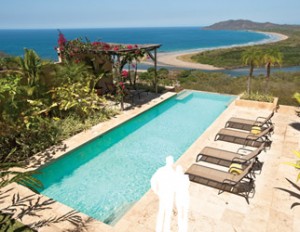Timeshares: What you need to know
Timeshares have a terrible reputation. Too bad, as this vacation option can really add value if purchased wisely. In this, the first of a three-part blog, I offer some insight into how to value a timeshare.
Advertisement
Timeshares have a terrible reputation. Too bad, as this vacation option can really add value if purchased wisely. In this, the first of a three-part blog, I offer some insight into how to value a timeshare.
 A couple of weeks ago I spoke to a reader who was more than a little concerned over the tactics used by the salespeople at a St. Maarten resort. After a 90-minute tour—and a promise of either a free massage or free dinner—he and his wife were barraged with personal questions regarding their finances and their vacation goals. Throwing out costs and savings—with nothing to back up the assertions—these “hard-nosed” salespeople were trying to convince this reader to buy a $50,000 resort timeshare.
Often, it’s these encounters—followed by less than desirable vacation experiences— that give timeshare ownership such a horrible reputation. But the reputation is unwarranted. In fact, a timeshare can be an excellent budget option for vacations, as long as you do your homework.
“Nothing matches the value of a timeshare,” says DG Southen, an experienced real estate investor from London, Ont. For the last decade Southen has bought, sold and used timeshares. Southen, and thousands like him, has found ways to make timeshares work as cost effective vacation options.
In the current issue of MoneySense magazine (“Own A Piece of Paradise,” June 2013), I touch on the effective use of timeshares, but I want to expand on my coverage. Partly because timeshares are a misrepresented vacation option, and partly to help those interested in purchasing timeshares to make more informed decisions.
A couple of weeks ago I spoke to a reader who was more than a little concerned over the tactics used by the salespeople at a St. Maarten resort. After a 90-minute tour—and a promise of either a free massage or free dinner—he and his wife were barraged with personal questions regarding their finances and their vacation goals. Throwing out costs and savings—with nothing to back up the assertions—these “hard-nosed” salespeople were trying to convince this reader to buy a $50,000 resort timeshare.
Often, it’s these encounters—followed by less than desirable vacation experiences— that give timeshare ownership such a horrible reputation. But the reputation is unwarranted. In fact, a timeshare can be an excellent budget option for vacations, as long as you do your homework.
“Nothing matches the value of a timeshare,” says DG Southen, an experienced real estate investor from London, Ont. For the last decade Southen has bought, sold and used timeshares. Southen, and thousands like him, has found ways to make timeshares work as cost effective vacation options.
In the current issue of MoneySense magazine (“Own A Piece of Paradise,” June 2013), I touch on the effective use of timeshares, but I want to expand on my coverage. Partly because timeshares are a misrepresented vacation option, and partly to help those interested in purchasing timeshares to make more informed decisions.
Share this article Share on Facebook Share on Twitter Share on Linkedin Share on Reddit Share on Email